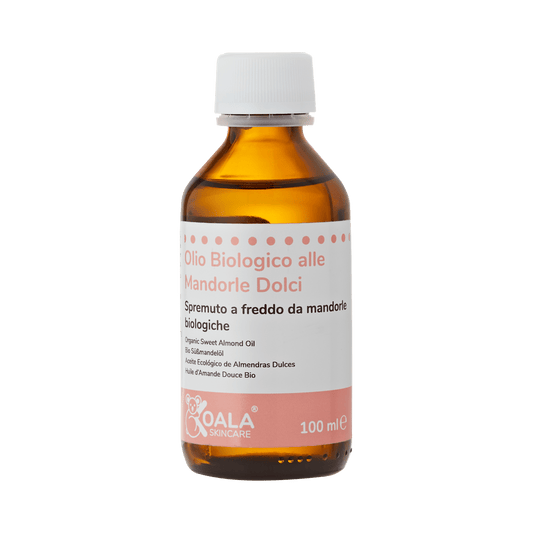Camomile offers a vast number of properties and health benefits: this plant is a true natural universal remedy, particularly suitable at the most delicate of times such as pregnancy, breastfeeding, weaning, and beyond.
However, as with all substances "it is the dose that makes the poison" (in the words of Paracelsus). Therefore, let's take a look at the recommended uses of Camomile for mothers, infants, and babies once they’ve been weaned.
Camomile: properties and health benefits
Mild sedative and calming effect, as well as antispasmodic and myorelaxant properties, the Camomile plant promotes muscle relaxation, thanks to the presence of flavonoids and coumarins, making it particularly beneficial for all types of muscle spasms and tension, anxiety and stress, intestinal cramps, menstrual pain and to aid digestion!
It has natural anti-inflammatory abilities and good gastroprotective effects, calming irritation of the internal organs as well as the epidermis, thanks to the soothing action of its essential oil.
Very effective at reducing urinary tract inflammation, gingivitis, ulcers, dermatitis, gastritis, and also an effective pain reliever for headaches and toothache.
Camomile tea for pregnancy and when breastfeeding
Given that every mum-to-be and every pregnancy is different and unique, it is always good to consult your doctor before you enjoy a good cup of Camomile tea each evening, as any food or drink consumed on a regular basis, as well as in substantial quantities, may cause harm to the unborn baby.
It’s normal to feel more anxious or more tired than usual throughout pregnancy, especially when combined with not being able to sleep or rest comfortably. Back and neck pain, discomfort in your intimate area, poor digestion and intestinal problems are, unfortunately, part and parcel of pregnancy.
A cup of Camomile tea aids digestion relaxes the intestinal tract and improves quality of sleep, as well as providing relief from muscle aches and pains without medication.
However, bear in mind that like with everything, moderation is key: don’t infuse the tea bag or leaves for too long as, in some people, this can lead to uterine contractions and overexcitement.
For topical use (on skin), washes containing Camomile oil or Camomile ointments and creams, can also be very useful in providing relief from common discomforts around intimate areas, such as haemorrhoids and irritation.
Similarly, when breastfeeding, up to six months old, by drinking a light herbal tea the mum can pass on the same health benefits to the baby, this may help with intestinal gas.
Camomile for infants
Camomile tea is great for infants too but be beware! From birth to 6 months of age, the World Health Organisation recommends that infants receive nutrition only by means of breastfeeding.
No herbal teas for young babies to help them sleep or for anything else: up to six months of age, breastfed babies should not be given any other type of liquid other than breast milk to nourish them, not even water!
If a mum wants to pass on some of the health benefits of Camomile to her baby, then all she needs to do is drink some of the herbal tea herself. However, green light for using topical use of Camomile to cleanse, soothe and protect baby's delicate skin, such as Camomile-based oils, creams, and lotions.
Yes - also to Camomile eye compresses for treating conjunctivitis in newborn babies, by applying sterile compresses soaked in Camomile herbal infusion to refresh and soothe their delicate eye area.
Camomile tea for weaning 6-month-old babies
From six months old onwards - and without needing to check with your Doctor - you can start to prepare natural, and if possible organic, herbal teas for your baby. Camomile tea is always preferable because of the mild and specific properties it offers.
One of the main effects of Camomile tea is muscle relaxation, which can help settle babies: before bedtime, it is an ideal herbal drink for calming fussy babies and helping them relax naturally.
If using in this way, always purchase Camomile from herbalist shops or in the classic tea sachet versions – and avoid using soluble Camomile, which is often sweetened. Do not add sugar or honey as the baby about to go to bed, as sugar not only encourages the onset of cavities, but may also prevent your baby from falling asleep. With regards to colic, grandma's remedies are still valid!
You can give them Camomile tea to aid digestion, to help eliminate intestinal gas, and, as we mentioned before, it is better to use sachets or loose tea leaves, preferably without adding sugar. Camomile has a pleasant taste just on its own which babies enjoy.
What more can we say? Luckily for us, nature offers wonderful natural remedies, including the beautiful, delicate, and fragrant Camomile flower, which offers so many health benefits to both you and your baby!








